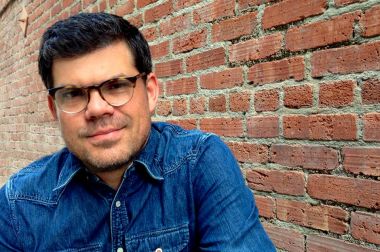'Year without God' pastor: The world makes more sense without God

The former Seventh-day Adventist pastor who gave up religion for a year has now announced that "the existence of God seems like an extra layer of complexity that isn't necessary".
In an interview with RNS, Ryan Bell said he is speaking from a "provisional" conclusion, but that "the intellectual and emotional energy it takes to figure out how God fits into everything is far greater than dealing with reality as it presents itself to us".
"That probably sounds very non-rational, and I want people to know that I have read several dozen books and understand a good many of the arguments," Bell added.
"I'd just say that the existence of God seems like an extra layer of complexity that isn't necessary. The world makes more sense to me as it is, without postulating a divine being who is somehow in charge of things."
Bell formerly pastored several churches in Philadelphia before moving to Hollywood to lead a Seventh-day Adventist church. However, he was asked to resign in March 2013 after raising theological issues and began to struggle with his faith.
In December 2013 Bell wrote a blog post that went viral in which he announced that he would be undertaking a "year without God".
"I'm making it official and embarking on a new journey. I will 'try on' atheism for a year. For the next 12 months I will live as if there is no God," Bell wrote.
"I will not pray, read the Bible for inspiration, refer to God as the cause of things or hope that God might intervene and change my own or someone else's circumstances. (I trust that if there really is a God that God will not be too flummoxed by my foolish experiment and allow others to suffer as a result)."
Bell pledged to read atheist texts to visit gatherings of non-believers. "In short, I will do whatever I can to enter the world of atheism and live, for a year, as an atheist. It's important to make the distinction that I am not an atheist. At least not yet. I am not sure what I am. That's part of what this year is about," he said.
He blogged his journey, which began with him losing his teaching jobs at two religious institutions because of his decision. He said that he would announce his stance on religion in the new year, however in an interview with NPR in December he said that he no longer identifies with Christianity, though atheism feels like "an awkward fit".
"I've looked at the majority of the arguments that I've been able to find for the existence of God and...I have to say I don't find there to be a convincing case in my view," Bell revealed.
"I don't think that God exists. I think that makes the most sense of the evidence that I have and my experience."
He told RNS' Chris Stedman, a self-described "fellow Christian-turned-nontheist," that he enjoyed the year-long experiment, and would recommend it to others. "Any time you can step outside your comfort zone, you will learn important things about yourself and the world. I've learned that atheists are not the miserable nihilists that many Christians think they are," Bell said.
"I've also had a few remarkable moments of irony. Once I was in a gathering of atheists and the speaker referred to 'seeing the light' and 'finding freedom at last.' It struck me then that most people really are searching for the same thing."
Bell also said that there needs to be more space for those who aren't sure what they believe to be open about their views. "There are thousands and thousands of people who are betwixt and between, and there is next to nothing for them in the world of religion. I'd like to be a part of that conversation. How people learn to live into the best aspects of their worldviews, while leaving behind the unbelievable parts, is sometimes slow, hard work. Frontal assault on religion is not always the best approach," he said.
Bell also insisted that the way in which people live, not their belief systems, is what is most important.
"I think what is far more important to know about me is the way I choose to live my life. Once people have come to terms with the weaknesses or falsehoods in their belief system, the work has just begun," he said.
"How we reshape or build the narratives by which to live our lives is the most interesting part of our work as human beings."











